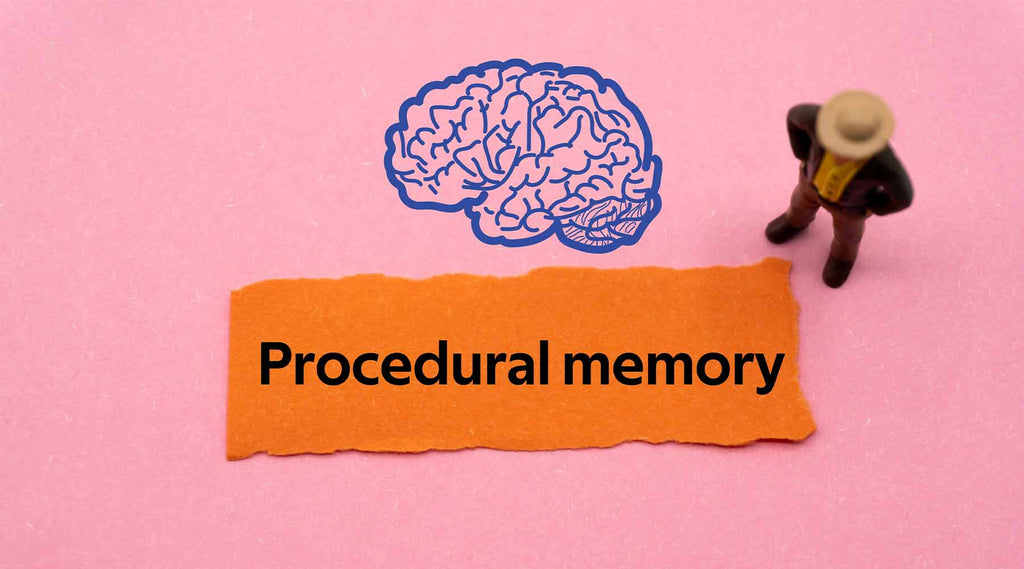
This is one in a series of posts describing the ten Montessori Principles for dementia care. Click here for the first post in the series
Procedural memory is the type of mem ory that is responsible for knowing how to do things. As the name implies, it stores the steps involved in doing repetitious activities. It is procedural memory that causes us to automatically, without conscious thought complete a phrase or turn a door knob as our hand touches it. In dementia and Alzheimer's, procedural memory deteriorates slowly. Declarative memory, which controls consciously recalled facts and knowledge, deteriorates quickly and we must find ways to compensate for those losses. This Montessori memory care principle emphasizes that we must consider both in dementia care.
"Classical conditioning" is when one thing happening causes another to happen automatically and is part of procedural memory. For example, toss a ball to a person and they will usually catch the ball (or attempt it) and toss it back. We can use this to help the person with dementia. If we want the person to work their hands for exercise, we can use the ball toss as a way to get them involved without requiring any other instruction or direction. There are lots of such responses depending on the person's background. One person may start dusting when handed a duster, another may automatically roll the dice or shuffle the cards when they are handed to them. We can use all of these reactions when engaging the person with memory loss.
Another way to take advantage of the sparing of procedural memory is to present activities that are familiar and build on the repetition, rather than introducing new activities. Over time, as the person does the activity more and more, they will be more successful. The expression we use is "the more they do it, the better they get at it" and it is called "repetitive priming" and is highly effective for people with dementia and memory loss.
To compensate for the loss of declarative memory in dementia, we should avoid asking a person facts. One way to do this is to ask the person questions with a choice of two answers where one is obviously wrong. For example, if you were doing a trivia game, use questions such as "Which animal flies, a dog or a bird?", "Do hockey players shoot the puck or the baseball?". Another way is to ask the person a question with the answer included in the question such as "Is that a picture of the Canadian flag?". The idea is to not put them on the spot where they need to come up with a factual answer or find a word without any clue or suggestion.
Another way to compensate for deficits the loss of memory causes is to use signs and cueing. Putting a label "Coffee Mugs", or a picture of a coffee mug on the cupboard door where the mugs are stored can help a person find them on their own, an arrow on the washing machine dial showing the correct setting may enable them to do laundry, or a "Restroom" sign may help them go on their own. All of these are known as environmental cueing and can help overcome declarative memory losses in people with dementia and Alzheimer's.




